Legal Framework and Compliance for Making Tax Digital (MTD)
As we continue to transition towards a fully digital age, the ways in which businesses manage their taxes are no exception. This comprehensive guide will delve into the nuances of Making Tax Digital (MTD), a key initiative introduced by HMRC to simplify tax administration, and how businesses can achieve compliance. Understanding MTD can significantly streamline your tax management processes, help you avoid penalties, and improve your financial planning.
What is Making Tax Digital (MTD)?
Introduced by HMRC, MTD is a crucial piece of legislation designed to transform the UK tax system. MTD mandates businesses, landlords, and self-employed individuals to keep digital records of their transactions and submit tax returns using compatible software. The transition to MTD is incremental, with MTD for VAT implemented in April 2019 and MTD for Income Tax Self Assessment (ITSA) expected to roll out in April 2023.
Understanding MTD for VAT
As part of the MTD initiative, businesses with a taxable turnover above the VAT threshold are required to keep digital records and submit their VAT returns through MTD-compatible software. MTD for VAT applies to all VAT-registered businesses, with the primary legislation introduced in April 2019.
In terms of VAT compliance, businesses need to maintain their records digitally using approved software or spreadsheets combined with bridging software. This includes recording the time and date of supply, the value of supply, and the rate of VAT charged, among other things.
Making Tax Digital for Income Tax (MTD for ITSA)
Making Tax Digital for Income Tax Self Assessment (ITSA) will apply to self-employed individuals, partnerships, and landlords with a gross income over £10,000 per year. This initiative will replace the traditional self-assessment tax return, starting in April 2023. MTD for ITSA requires taxpayers to keep digital records and submit income and expenditure summaries to HMRC quarterly through MTD-compatible software.
How to Comply with MTD Regulations
To comply with Making Tax Digital regulations, businesses and individuals need to keep track of their income and expenses digitally using MTD-compatible software. Such software needs to be capable of storing digital records, calculating the tax due, and submitting information directly to HMRC.
For businesses and landlords still using spreadsheets for their records, they can continue to do so but will need to use bridging software to send this data to HMRC. This software will create a digital link between the data and HMRC’s systems.
The Future of MTD
Looking ahead, MTD is set to become an integral part of the UK’s tax system. By April 2026, all businesses, regardless of turnover, will need to follow MTD for VAT rules. Additionally, MTD for Corporation Tax is currently in its pilot phase, indicating an even broader digitalization of the UK’s tax system.
Key Takeaways
-
- MTD is a piece of legislation mandating businesses and landlords to keep digital records and submit tax returns using compatible software.
- MTD for VAT requires VAT-registered businesses to maintain digital records and submit VAT returns through MTD-compatible software.
- Making Tax Digital for Income Tax Self Assessment (ITSA) applies to self-employed individuals, partnerships, and landlords with a gross income over £10,000 annually, starting in April 2023.
- Compliance with MTD regulations necessitates digital record-keeping and the use of MTD-compatible software for tax submissions.
- The digitalization of the UK tax system will continue to expand, with all businesses expected to follow MTD for VAT rules by April 2026.


Request a call back
Let us know when you would like us to call you back by filling in this form:
Our 5 Star Reviews



Latest News

Making Tax Digital 2023: MPs Criticise Delays and Complexity
Explore the challenges and impacts of the UK’s Making Tax Digital initiative, including delays and the cost burden on taxpayers.

Making Tax Digital: Small Business Review
Making Tax Digital Small Business Review 2023: Understanding the Basics and Preparing for Change Introduction to Making Tax Digital (MTD) Since 1948, Jack Ross Chartered

Making Tax Digital: The Rising Costs and Challenges
Making Tax Digital: The Rising Costs and Challenges Introduction Making Tax Digital (MTD), the ambitious initiative by HM Revenue & Customs (HMRC) to digitise the
